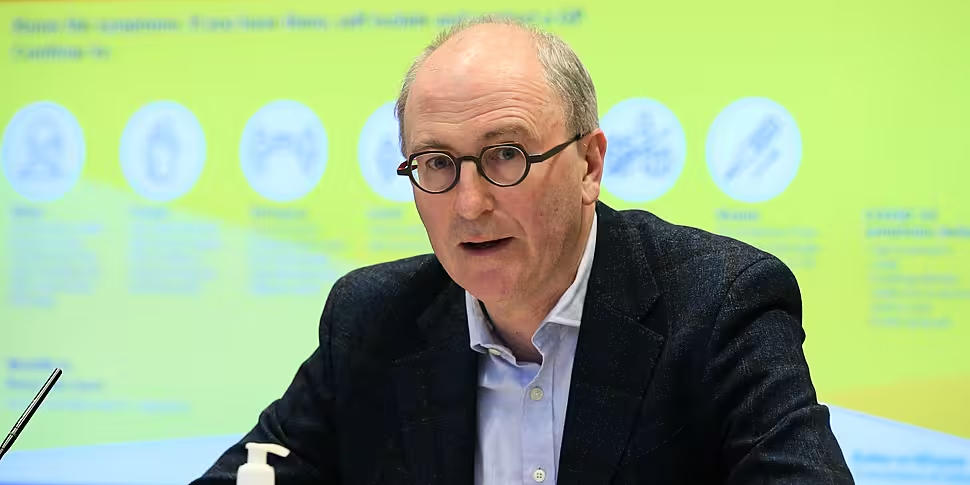A Dublin GP says giving examples of COVID-19 outbreaks among families isn't about victim shaming, but is instead about educating people.
Dr Ray Walley says the case studies he has shared publicly about outbreaks were about people who asked for their stories to be told.
Dr Walley - a member of the National GP Liaison Committee - appeared at a NPHET briefing last night, where he warned of an increase in family-based coronavirus transmission.
He said he was "aware of one family who visited who visited a family member who was dying in hospital from COVID and all of the family have developed COVID as a result".
This received some online criticism, with some users saying they were uncomfortable with a particular family being used as a case study.
However, Dr Walley told The Hard Shoulder he has the consent of the people he's talking about to share their stories.
He said: “I don’t think it’s anything about victim shaming - it’s about educating people.
"These people asked for this to be communicated, because they were surprised with what happened them."
He said he shared the story of that particular family as he was 'taken aback' by what actually happened.
He said: "It brought to the fore that if you’re visiting someone in a hospital - and unfortunately this person was terminally ill, and subsequently died of COVID - that you’re effectively acting as a contact. Obviously that has risks to it.
“I [also] told the story from one of my older patients, which happened in September / October last year. That patient has attended two funerals, two weeks apart, of her two brothers.
"She realised at the second funeral - both of which were held outdoors, and she was doing all the right things - that people were talking to her and commiserating for too long. Subsequently, she got COVID, and so did her family.
“I asked her the lessons to be learned from that, and she said she wouldn’t have attended her brothers’ funerals."
Difficult information
Dr Walley said doctors sometimes need to give people difficult information, so they're able to make decisions about what to do.
He reiterated his warning that there is 'real concern' about increased coronavirus cases among younger and older people alike.
He said people aren't spreading the virus on purpose, but instead simply often don't know they're infectious.
The Dublin GP said it's 'human nature' that people are frustrated with the ongoing restrictions, and that everyone is fed-up of being isolated in their homes.
However, he said it's hoped that speaking up about the current dangers will 'refocus' people.
He suggested people should 'buddy up' with someone else who's willing to give them 'constructive criticism' about whether their actions and decisions are appropriate.









